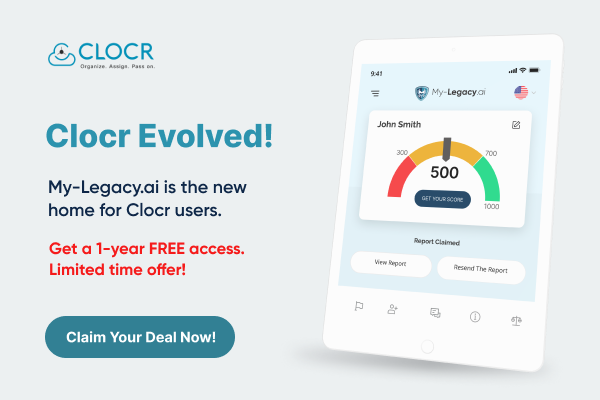It may seem uncomfortable to bring up serious subjects like end-of-life care choices with family members. But, clearly, it is the need of the hour to have the conversation and have a clear plan for your end of life care. And, creating an Advance Healthcare Directive is crucial when it comes to planning for the end of life care.
In this guide, we will discuss everything you need to know about Advance Healthcare Directives. So, let’s start!
What is an Advance Healthcare Directive?
Simply put, an Advance Healthcare Directive is a legal document expressing an individual’s wishes regarding critical care when they are unable to decide for themselves. It allows them to make future decisions about their end-of-life care (decisions about life support or feeding tubes, etc.
It actually helps your family in making decisions according to your wishes in case of a terminal illness. Thus, you can think of Advance Healthcare Directives as a way to reduce your family’s burden in case of your illness.
Why are Advance Healthcare Directives Important?
An Advance Healthcare Directives or AHCD are important due to the following reasons:
- It allows you to express your end of life healthcare wishes about various medication, treatment options, and more.
- It allows you to choose someone who can make treatment decisions for you if you’re unable to communicate your wishes – for instance, in case of a degenerative illness or an incapacitation.
- By stating your wishes in an advance healthcare directive, you can avoid unnecessary hospitalization, ineffective treatment, and unwanted medical procedure.
- Sometimes there are conflicts among family members regarding whether to continue or discontinue certain medical treatments. But, an advance directive will eliminate any such conflict.
- It offers peace of mind to you and your loved ones no matter what the future holds. It specifies the kind of end-of-life care you want, how much your family should be involved in your healthcare decisions.
Thus, Advance Healthcare Directives are important when it comes to preparing for the end. It allows you to have a say in the healthcare you may someday receive, and it protects your loved ones from the pain and uncertainty of having to guess what treatment you want.
Types of Advance Healthcare Directives

The three Types of Advance Healthcare Directives are as follows:
- Living Will and
- Durable Power of Attorney For Healthcare
- Healthcare Proxy
1. Living Will
A living will is a legal document that is a type of Advance Directive that lets you express your preferences for medical care if you’re ever unable to communicate them yourself.
It helps you specify the treatment and procedure you don’t want to receive such as a feeding tube or being placed on a ventilator. You can name your preferred doctor and describe the type of palliative care you’d like.
2. Durable Power of Attorney for Healthcare
It is a legal document that allows you to give someone you trust the authority to make important medical decisions for you in case you’re unable to make them on your own.
The Durable Power of Attorney even allows an individual to make bank transactions, sign Social Security checks, apply for disability, or simply write checks to pay the utility bill in case you are medically incapacitated.
Thus, before you choose your Durable Power of Attorney make sure they are trustworthy, understand your preferences, and have your best interest at heart.
You might be interested in reading:
3. Health Care Proxy
Typically, your Healthcare Proxy is your health care agent who follows the wishes you outlined in your Living Will. But, if a situation arises that isn’t mentioned in your Living Will, they should decide in your best interest.
Your Health Care proxy in a way has the same rights to request or refuse treatment that you would have if capable of making and communicating decisions.
What are the Essential Advance Healthcare Directive Documents?
Some documents that are a crucial part of Advance Healthcare Directives are as follows:
DNR (Do Not Resuscitate) orders
It informs medical staff in a hospital or nursing facility of your wishes regarding CPR or other life-support measures.
Organ and tissue donation
It allows organs or body parts from a generally healthy person who died to be transplanted into someone who need them.
POLST and MOLST forms
These act as a guide about your medical care preferences in the form of a doctor’s orders. Typically, POLST (Physician Orders for Life-Sustaining Treatment) or MOLST (Medical Orders for Life-Sustaining Treatment) are created when you are near the end of life or critically ill. These forms serve as a medical order in addition to your Advance Healthcare Directive.
You might also be interstate in reading:
Who Needs Advance Healthcare Directives?

Advance Healthcare Directive is not just for old age. At any age, you can have a medical crisis that could leave you too ill to make your own health care decisions. Even if you are not sick now, planning for health care in the future is important to make sure you get the medical care you would want.
Moreover, it helps you ensure not only your choice of medical care but also reduce a huge burden off your family members. Covid-19 has made it quite clear that no matter what your age is, you are prone to life threatening illnesses.
Thus, it’s best to be prepared and plan your end of life care.
COVID-19 and Advance Healthcare Directives
Most of the global conversation around the COVID-19 pandemic is about how to prevent the spread of the virus. But along with staying home, maintaining social distance and sanitizing hands, it’s also important to be prepared for the possibility of serious illness that can result in incapacitation or death. And, here Advance Healthcare Directives plays an important role.
An Advance Healthcare Directive can help you specify your healthcare preferences and this helps your family members to know exactly what you would want in case of terminal illness or incapacitation due to Covid-19.
Conclusion
Advance Healthcare Directives are definitely a vital part of your End of Life Planning and leaving a legacy for your family. And, after you create your Advance Healthcare Directives, make sure you give a copy to your doctors, and family members. Also, give copies of the healthcare directives to the person you named as your Durable Power of Attorney for Healthcare.
It is never too early to start planning for your end of life care, especially, when Covid-19 pandemic has affected everyone, be it children, adults, or senior citizens. Clocr provides an all-in-one life planning platform. So join us today and begin your End of Life Planning journey.




